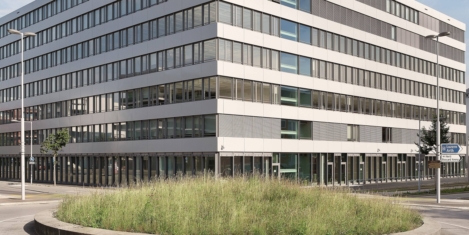December 6, 2018
Constant switching between tasks kills productivity
 A new report claims that the modern habit of switching constantly between tasks is draining productivity. In a study of live desktop activity, the results suggest employees are forced to switch between up to 35 job-critical applications nearly once a minute – or more than 1,100 times every day – adding unnecessary complexity that reduces efficiency and frustrates workers. The study from Pegasystems analysed nearly 5 million hours of desktop activity of operational support employees – who primarily perform routine back office, data entry, or contact centre tasks – at Global 2000 companies from January to September 2018.
A new report claims that the modern habit of switching constantly between tasks is draining productivity. In a study of live desktop activity, the results suggest employees are forced to switch between up to 35 job-critical applications nearly once a minute – or more than 1,100 times every day – adding unnecessary complexity that reduces efficiency and frustrates workers. The study from Pegasystems analysed nearly 5 million hours of desktop activity of operational support employees – who primarily perform routine back office, data entry, or contact centre tasks – at Global 2000 companies from January to September 2018.

















 Generation Z, the latest generation to enter the workforce, are more likely to be motivated by job satisfaction and working for social good than by money, a new report claims According to new research from Huawei, in partnership with Chris Brauer, Director of Innovation at Goldsmiths, University of London, based on responses from 2,000 18-25-year olds’ across the UK, also reveals that a new tribe of working professionals among Gen Z is emerging, the ‘New Working Order’.
Generation Z, the latest generation to enter the workforce, are more likely to be motivated by job satisfaction and working for social good than by money, a new report claims According to new research from Huawei, in partnership with Chris Brauer, Director of Innovation at Goldsmiths, University of London, based on responses from 2,000 18-25-year olds’ across the UK, also reveals that a new tribe of working professionals among Gen Z is emerging, the ‘New Working Order’. 















December 4, 2018
I’m a designer and I job share with an AI
by Ceilidh Higgins • Comment, Technology, Workplace design
Thomas Edison is credited with the phrase “Genius is one percent inspiration, ninety-nine percent perspiration” and I believe there is no field where this applies more than architecture and design. So often people assume that interior design is such a fun, creative job – that it’s all about drawing, colours and furniture, something like being paid to colour in and shop – when today being a designer is just as much about people management, psychology, project management, documentation, checking codes and standards and managing contracts. It’s also often about a culture that expects long hours and being always available to the job. “It’s not work when you are passionate about it?” is common. But what if instead we could all work less hours and job share with our computers?
More →